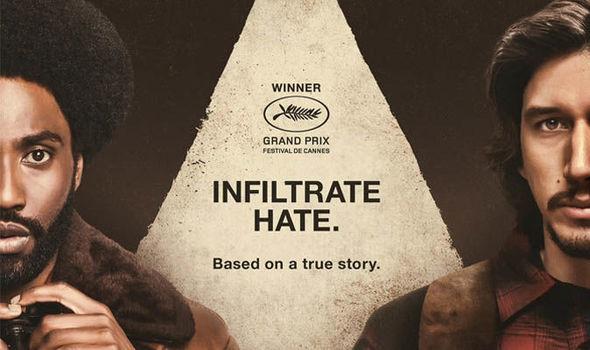In a brilliant effort to show the strikingly horrific parallels between past and present-day racism, legendary film director Spike Lee returns to tell the remarkable true story of the first African-American cop to investigate, infiltrate and expose the malicious acts and ideologies of the infamous Ku Klux Klan.
Produced by the same team who brought you the Academy Award winning film “Get Out,” Lee’s two hour and 40 minute box office hit “BlacKkKlansman,” was released on Aug. 10, making $10.8 million during its first opening weekend, according to Forbes.
Based off the memoir “Black Klansman: Race, Hate, and the Undercover Story of a Lifetime,” written by Ron Stallworth, the film is set during the early 1970’s, a decade known for cultural change and political movements that would (hopefully) improve the lives of marginalized individuals living in America. It was during this pivotal time period of liberation when Colorado Springs Police Department decided to employ Stallworth, their very first African-American officer.
Now recognized as an American hero, the real Stallworth was a member of the Colorado Springs chapter of the Ku Klux Klan in 1979, the year in which he launched his groundbreaking investigation after answering a newspaper advertisement calling for new Klan members in his city. From here, Stallworth wrote them a letter disguising himself as a white man who shared similar views. Within the following week, the chapter president of the Colorado Springs Ku Klux Klan called Stallworth asking if they could meet.
Contrary to real life events, Stallworth’s character in the film, played by John David Washington, simply calls the Klan’s chapter president directly. Disguising himself as a white supremacist, Stallworth is able to seamlessly gain the chapter president’s trust while simultaneously landing an in-person meeting with the other Klansman to secure and authorize his membership. For obvious reasons, this is when Stallworth’s plan grows rather complicated.
Stallworth, whom is clearly not white, decides to then recruit another member in the Colorado Springs Police Department to pass as him during Klansman meetings. Played by Adam Driver, Flip Zimmerman is the man Stallworth decides to drag into this investigation. Little does the Klan know that Zimmerman is most definitely not Stallworth. He’s also Jewish, making the operation that much more dangerous.
While Zimmerman meets with the Klan members face to face, Stallworth continues to contact them by telephone and even becomes acquainted with the grand wizard, David Duke. Contrary to the stereotypical, racist caricatures that are often found in mainstream Hollywood cinema, Duke is a persuasive and well-spoken leader whom is oddly likeable on the service level. Duke’s character is meant to show audiences that some of the most evil and clever masterminds are able to pass themselves off as charismatic, only making them more dangerous and undetectable.
Although the film was set to occur nearly five decades ago, many have praised “BlacKkKlansman” for seamlessly weaving our country’s dark past and present together in a way that is neither subtle nor questionable. By doing this, Lee was able to create a film that truly shocked audiences into reality, summoning American citizens to wake up and face the realization that our past and present are one in the same.
This film is not to be taken lightly. Although having comedic moments from time to time, Lee does not allow his audience to ever become comfortable with the subject matter. From start to finish, “BlacKkKlansman” will have you squirming in your seat, horrified with the stark reality presented in front of you, but perhaps that’s what makes this film a true piece of cinematic gold with a powerful message that will haunt you long after you leave the movie theater.



































